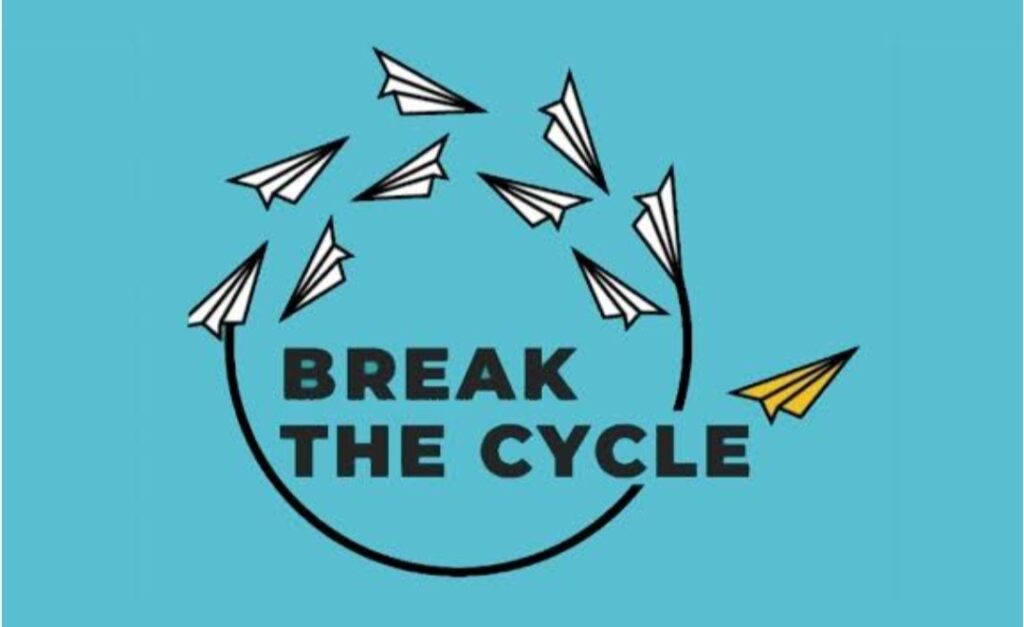
In a world characterized by rapid change and evolving challenges, the concept of “breaking the cycle” resonates more than ever. Whether referring to unhealthy family dynamics, systemic societal issues, or individual patterns of behavior, the act of recognizing and altering these repetitive cycles is crucial for personal development and the advancement of humanity as a whole. Its important to break the cycle, as it extends beyond mere self-improvement; it fosters resilience, innovation, and positive change that can reverberate through generations.
Understanding the Cycle
Cycles can manifest in numerous forms—addictions, toxic relationships, or entrenched societal norms. These patterns often create a sense of entrapment, perpetuating feelings of hopelessness and stagnation. For instance, in families where communication is lacking, misunderstandings can create emotional distance. In societal contexts, systemic issues like poverty and inequality can seem inescapable due to their historical roots. Such cycles can lead to desensitization and complacency, where individuals accept their circumstances as unchangeable truths, stifling progress and growth.
The Personal Impact of Breaking the Cycle
On a personal level, breaking the cycle begins with self-awareness. Acknowledging behaviors or thought patterns that contribute to one’s unhappiness is the first step toward change. This process can be challenging, as it often involves confronting uncomfortable truths about oneself. However, the rewards of this journey can be profound: improved mental health, enhanced relationships, and a newfound sense of empowerment.
For instance, someone who grew up in an environment marked by conflict may find themselves repeating those patterns in their adult relationships. By recognizing this behavior and seeking healthy communication and conflict resolution strategies, they can break the cycle, leading to healthier interactions and a more fulfilling life.
Societal Implications
On a larger scale, breaking cycles can catalyze societal change. Consider social justice movements that address systemic inequalities. Activists and communities that dare to challenge deeply rooted injustices—whether they relate to race, gender, or economic disparity—play a vital role in reframing narratives and enacting change.
For example, the movements advocating for climate change action are vital as they break the cycle of environmental exploitation and contribute to a sustainable future. By recognizing the destructive patterns of consumption and pollution, individuals and communities are actively choosing to pursue practices that lead to recovery and regeneration.
The Role of Education and Awareness
Education is another critical factor in breaking the cycle. By equipping individuals with knowledge and skills, we empower them to make informed choices that can alter their trajectories. This continuity of learning creates a ripple effect, where individuals who break free from their cycles often become advocates and mentors for others.
Moreover, raising awareness about cycles in various contexts—mental health, social justice issues, or environmental concerns—can foster collective action. The more communities understand the challenges they face, the more equipped they are to implement change.
The Courage to Change
It takes considerable courage to break the cycle, whether on a personal or societal level. Fear of the unknown, the security of familiarity, and societal pressures can all be barriers to change. However, those who take the leap often find that the benefits far outweigh the challenge. Personal resilience is built through the process, and therefore, even small changes can initiate significant transformations.
The importance of breaking the cycle cannot be overstated. For individuals, it offers a path to healing and personal growth; for societies, it fosters progress and justice. As we navigate our lives—whether grappling with personal challenges or engaging with wider social issues—let us remember the power of change and the potential it holds. Breaking the cycle is not just a personal journey; it is a collective responsibility that paves the way for a brighter future for all. Embracing this journey may be difficult, but it is a crucial step toward creating a world where individuals and communities thrive.


